- Andersons’ consultants are continuing to support their clients during the pandemic. If you require any advice, please contact your usual consultant, or the office on 01664 503200 or email [email protected].
- The deadline for applications to the Sustainable Farming Scheme (SFI) Pilot has been extended until 30th September 2021 (originally 1st September). The Pilot is for those who expressed an interest in the scheme earlier in the year. Furthermore, Defra continues to make amendments to the online guidance for the SFI Pilot. There seems to be a lot of guidance, we think the best place to start and ‘navigate’ from is https://www.gov.uk/government/collections/sustainable-farming-incentive-pilot-guidance. The extension might suggest that not as many have signed-up to the scheme as Defra hoped. If you expressed an interest in the scheme earlier in the year and would like help with applying, do not hesitate to contact one of our consultants.
- Farmers in Scotland could receive 95% of their 2021 BPS payment as early as September. Once again, Scotland has announced it will be running a National Basic Payment Support Scheme. This will mean loan offers will be made, calculated at 95% of a claimant’s anticipated BPS payment including the Greening amount, capped at a maximum of £133,638 (€150,000). Letters will be sent out in batches, with the first set arriving from mid-August. Similar to the scheme in 2020, those wishing to make use of the scheme will need to opt in. Balance payments will be made from December 2021 when the payment window opens. In Wales, the aim is to make a BPS advance payment of 70% of the estimated claim value from 15th October 2021. Payment will be made automatically subject to submission of an eligible BPS claim and the necessary supporting documents. Balancing payments will be made from 15th December subject to completion of the full validation of the claim. In England there has been no announcement regarding ‘early’ payment. As in previous years payments are expected to commence on 1st December 2012
- Covid and Brexit disruptions are impacting on costs and availability in some parts of the economy. Rising costs of steel and timber from global demand and restricted production are also affecting building projects. Globally, costs for containers and bulk shipping have risen considerably. At home a shortfall of HGV drivers is causing problems. An existing shortfall has been exacerbated by EU drivers leaving due to a combination of Brexit and Covid. Covid has also delayed HGV driving tests meaning few new drivers are coming through. High-profile shortages such as Nando’s chicken and McDonalds milkshakes have already been reported (although the former is as much about a shortage of poultry processing staff as transport issues). There are few reports of deliveries to and from farms being affected, but it will be an area of concern over the coming months. It may be advisable not to let stocks on farm run too low as orders may take longer to arrive than usual and haulage of grain or livestock may have to be booked earlier.
- Higher Tier Countryside Stewardship agreement holders with 5-year options ending on 31st December 2021 and further 10 or 20-year options (called CS 5 in 10 Agreements) could be offered a replacement agreement under domestic regulations. These will run for 10 or 20 years and although not completely clear, it appears the options coming to their 5-year end will be extended so this land continues to be managed environmentally. NE will carry out initial assessments to see if an agreement is suitable for a replacement. If this is deemed to be the case, the RPA will write to agreement holders inviting them to apply. It will be possible to terminate a replacement agreement early, without penalty, at the end of an agreement year if a place in ELM has been secured.
- Defra has confirmed the Catchment Sensitive Farming initiative is to be expanded to cover the whole of England by March 2023. The programme gives farmers support to reduce air and water pollution. Some funding via CS is only available with support from a Catchment Sensitive Farming Officer (CSFO) and if the land is in a priority catchment area. It is unclear whether this announcement will mean the whole of England now falls within this category and these grants are available to all. There will be extra funding for more NE advisors to be available to help farmers implement practical solutions to reduce pollution. But it will also fund 50 new EA inspectors to carry out an increased number of farm inspections.
- The Farm Business Grant (FBG) opened in Wales on 1st September 2021 for expressions of interest. The closing date is 1st October and successful applicants will have four months in which to purchase and claim for items. The FBG provides a 40% contribution towards capital items which have been pre-identified to improve technical, financial and environmental performance. A budget of £2m is available under this round.
- A reminder that the Future Farm Resilience Fund is now open. If you would like a one-to-one farm resilience review and report carried out by one of our consultants and access to online skills and training, including resilience planning webinars all for free get in touch with one of our consultants. Places are limited. More information can be found at https://www.eventbrite.co.uk/o/ricardo-future-farming-resilience-fund-29430290977
- FPC Future, an agritech event, takes place on 4th November at the Lincolnshire Showground. With its exhibition, conference and tours of the University of Lincoln, it seeks to provide growers with all the agritech information they need. This event should be of interest to those looking at opportunities in the fresh produce sector as well as ascertaining how new technologies could boost productivity by helping their workforce to become more efficient. Registration is free – www.fpcfuture.co.uk
This month’s Spotlight looks at the latest the latest situation regarding the spreading of organic manure this autumn and the impact of the Farming Rules for Water. Click Here for further information.
If you would like more detail on the topics covered above as well as additional articles on UK farm business matters, why not subscribe to Andersons’ AgriBrief Bulletin? Over the course of each month, we give a concise and unbiased commentary on the key issues affecting business performance in the UK agri-food industry, and its implications for farming and food businesses. Please click on the link below for a 90-day free trial:

















